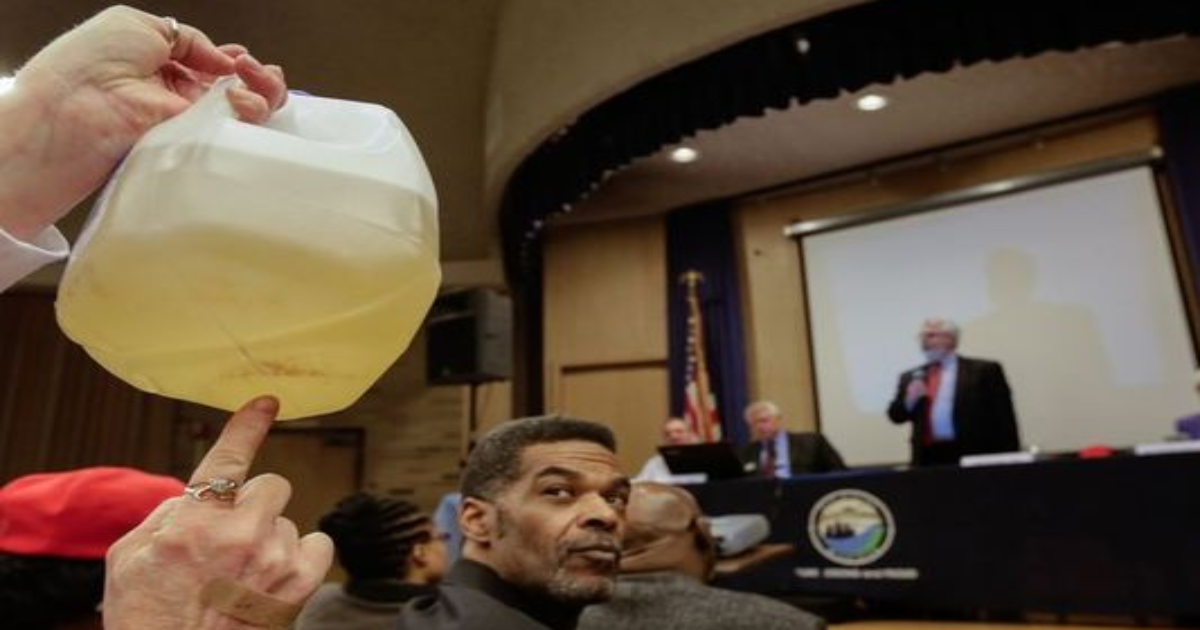As more information comes out about the Flint water crisis and the situation continues to deteriorate, Rick Snyder’s victims in this city are turning to the court system in order to get justice. It is likely to be an uphill battle for the largely African-American community. So far, ten lawsuits – including a number of class-actions – have been filed at the county, state and federal levels. In addition, the State of Michigan has established a special court in order to hear cases against it. However, Flint’s quest for justice could prove to be an uphill battle. Evidence of widespread corruption and negligence, resulting in lead poisoning and other contaminants in the city’s water supply, is abundantly clear – but plaintiffs may never see a dime in compensation. Many of the cases may never even come before a judge, due to the doctrine of “sovereign immunity,” which shields state and federal government from being sued.
That’s the bad news. The good news is the U.S. Department of Justice is one step closer to filing criminal charges against those found responsible for Flint’s tainted water. Last week, Federal prosecutors in the Wolverine State were joined by investigators from the FBI, the USPS Inspection Service and the EPA’s Criminal Investigation Division.
This development comes in the wake of action taken by Michigan’s Attorney General, William Schuette, who appointed a special committee to investigate the situation. The committee was tasked with determining if there were alleged violations of state statutes that might have caused or exacerbated the situation. Now that the FBI and EPA are involved, those agencies will be looking into violations of Federal law as well.
Unfortunately, few details of the expanded investigation are available at the moment. Furthermore, EPA head Gina McCarthy is unable provide a schedule for addressing Flint’s water problems, and would not comment on any criminal investigations.
The poisoning of Flint’s water supply is directly attributable to Michigan’s “Emergency Manager Law” as well as Governor Rick Snyder’s appointment of unelected, unqualified individuals to take over the city’s water infrastructure. As a money-saving measure, Flint’s chosen “emergency manager,” Darnell Earley, discontinued the city’s water contract with the City of Detroit and began drawing municipal water from the polluted Flint River two years ago. (Of course, Governor Snyder tells a different story: according to his version, it was Detroit that terminated the contract, leaving Flint with few options.)
The suffering of the people of Flint goes beyond the numerous health problems and even deaths caused by the tainted water supply. Because of the crisis, property values in Flint have plunged. California environmental attorney John Fiske is confident that, despite Michigan’s claims of “sovereign immunity,” Flint’s plaintiffs have a strong case – and an excellent shot at winning. “The concept is that the government is taking away life, liberty or property without due process,” he says. “What we’re seeing in this case is that the right to clean water, especially if you’re paying for it, should not be taken away.”
Local litigation lawyer Brian McKeen who represents two of the plaintiffs agrees. He points out that gross negligence is an exception to the “sovereign immunity” defense, and that the State of Michigan has admitted to such negligence in its failure to make sure that an anti-corrosive substance was employed to protect the pipes. Another plaintiff’s attorney adds that the negligence was “intentional,” saying that “[Sovereign] immunity was not meant to protect someone when they are not carrying out their duties in good faith.”
If Rick Snyder’s appointment of an incompetent crony to oversee Flint’s water supply doesn’t constitute “gross negligence,” it’s hard to know what does. Furthermore, it will come as little surprise if Federal investigators don’t determine that such negligence rises to the level of a felony.
With persistence and a little luck, we may yet see Michigan’s corrupt governor and his friends behind bars.





